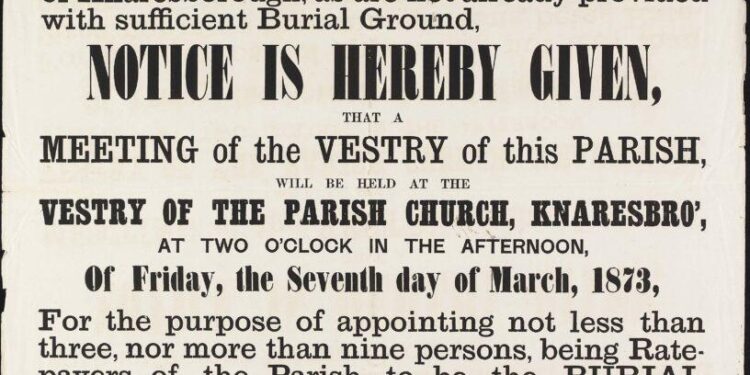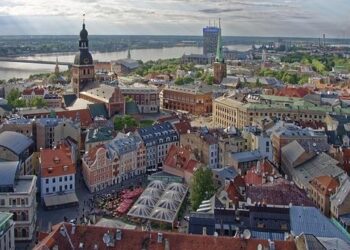For the first time in Latvia’s history, authorities are set to implement a unified regulation governing burials and grave maintenance, marking a significant step towards standardizing funeral practices across the country. The proposed legislation, highlighted by the Baltic News Network, aims to streamline procedures, ensure respectful treatment of burial sites, and address longstanding regional discrepancies that have complicated grave upkeep. This development reflects growing public and governmental interest in preserving cultural heritage while providing clear guidelines for families and cemetery management nationwide.
Unified Burial Regulations Set to Transform Funeral Practices in Latvia
The upcoming legislation marks a historic milestone for Latvia’s funeral industry by introducing a comprehensive framework that standardizes burial practices across the country. For the first time, families and service providers will navigate clear, consistent guidelines designed to ensure respectful treatment of burial sites, improve maintenance protocols, and streamline administrative procedures. Key components of the regulation include uniform rules on grave ownership durations, obligations for upkeep, and defined responsibilities for cemeteries, which are anticipated to enhance transparency and reduce disputes concerning grave management.
Officials assert that this initiative will modernize the sector, simultaneously honoring cultural traditions and responding to contemporary needs. The regulation also outlines specific roles for local authorities and private companies involved in funeral services, aiming to foster cooperation and accountability. Below is a summary of the key provisions expected to take effect:
| Provision | Description |
|---|---|
| Grave Ownership Period | Standardized at 25 years with options for renewal |
| Maintenance Obligations | Clear duties for grave upkeep assigned to owners or designated caretakers |
| Record Keeping | Mandatory centralized registry for all burial sites |
| Dispute Resolution | Establishment of local mediation committees |
- Enhanced transparency promises fewer conflicts over gravesites.
- Improved cemetery management aims to preserve cultural heritage.
- Streamlined administrative processes help families during difficult times.
Detailed Provisions Address Grave Maintenance and Preservation Standards
The upcoming regulation introduces a comprehensive framework aimed at standardizing the upkeep and protection of gravesites across Latvia. Among its key measures are clearly defined responsibilities for both cemeteries and relatives, ensuring that all burial sites are preserved with dignity and respect. The law sets explicit criteria regarding the regular cleaning, landscaping, and upkeep of monuments, while also addressing the timely removal of any structural damage or deterioration caused by natural elements.
To facilitate consistent maintenance, the regulation outlines mandatory practices including:
- Scheduled inspections by cemetery authorities
- Use of environmentally friendly materials for preservation work
- Implementation of record-keeping systems to monitor grave conditions
- Clear protocols for reporting neglected graves to local municipalities
| Aspect | Standard | Frequency |
|---|---|---|
| Cleaning | Removal of debris, weeds, and litter | Monthly |
| Structural Repairs | Fixing cracks, stabilizing headstones | Annually |
| Landscaping | Trimming grass, planting flowers | Seasonally |
Experts Recommend Clear Guidelines to Ensure Respectful and Sustainable Cemetery Management
Leading experts in cemetery management emphasize the urgent need for standardized regulations to promote both dignity and environmental sustainability in burial practices. Currently, Latvia faces a patchwork of local rules that result in inconsistent maintenance and management across cemeteries. Specialists argue that a unified legal framework will not only honor the memory of the deceased but also ensure the careful stewardship of cemetery grounds, balancing cultural traditions with modern ecological considerations.
Key recommendations put forward include:
- Clear criteria for grave maintenance responsibilities, outlining the roles of families, municipalities, and cemetery authorities.
- Sustainable landscaping guidelines to preserve green spaces while minimizing chemical use and waste.
- Protocols for respectful monument installations and removals, preventing neglect and vandalism.
- Transparent procedures for abandoned graves, allowing sensitive re-use without compromising heritage.
| Aspect | Current Situation | Proposed Improvement |
|---|---|---|
| Maintenance | Varies by municipality | Unified standards and schedules |
| Environmental Impact | Limited oversight | Eco-friendly landscaping mandates |
| Legal Clarity | Fragmented and vague | Comprehensive nationwide regulation |
To Wrap It Up
The introduction of a unified regulation on burials and grave maintenance marks a significant step forward for Latvia’s approach to managing its cemeteries and honoring its deceased. As authorities move toward implementing these standardized guidelines, many hope the reform will bring greater consistency, respect, and efficiency to burial practices across the country. The coming months will be crucial in shaping how these new regulations take root and how they impact families, municipalities, and the broader cultural landscape in Latvia. Baltic News Network will continue to follow developments on this important issue.
















